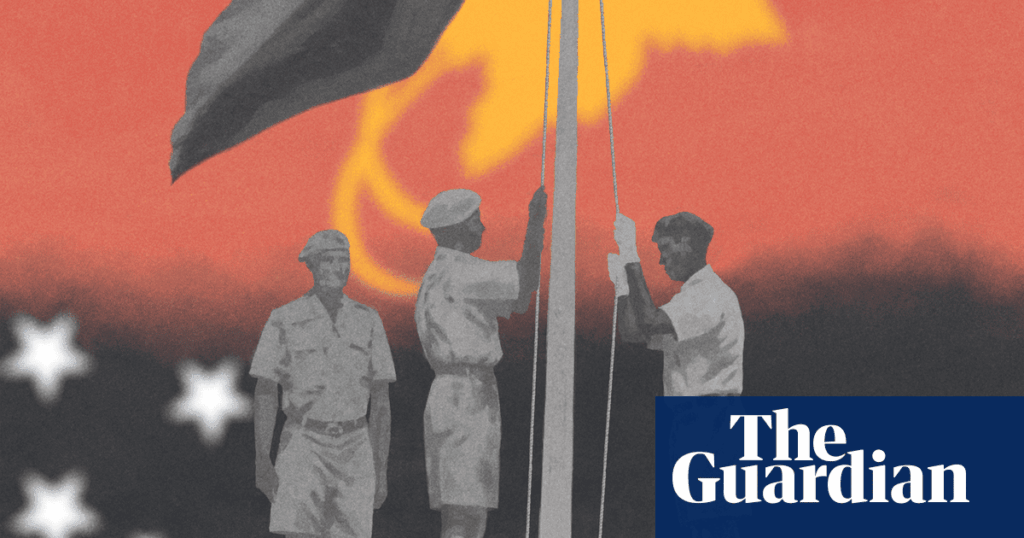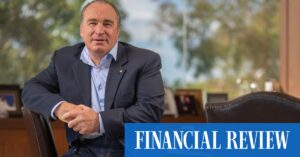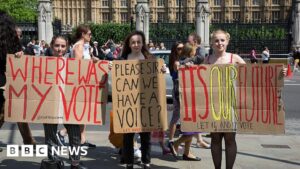
In the early 1970s, Dame Meg Taylor recalls an overwhelming sense of optimism as Papua New Guinea (PNG) stood on the cusp of independence. Joining the staff of Sir Michael Somare, who would later become the nation’s first prime minister, she felt the weight of history. “There was a lot of hope,” Taylor, a diplomat and former secretary general of the Pacific Islands Forum, reminisced. “I still have very wonderful memories of sitting out on the old steps of the office … just thinking, ‘What have we got ourselves into, and what an amazing opportunity that we have to build a country’.”
As Papua New Guinea prepares to commemorate 50 years of independence from Australia, Taylor and other prominent figures reflect on a nation that has struggled to fulfill its early promise. Interviews with dozens of Papua New Guineans, including a former prime minister, ex-military commander, and constitutional architect, paint a picture of a country grappling with violence, lawlessness, and a divided vision for the future. The conversations highlighted law and order, leadership, and access to essential services as the most pressing challenges facing the nation of nearly 12 million people.
Reflections on Independence
Peter O’Neill, who led Papua New Guinea from 2011 to 2019, expressed that the founding fathers would be disheartened by the current state of the nation. “I know that they would’ve been very disappointed that we have lost our way,” O’Neill said. “We have been blessed with a beautiful country with a lot of resources and beautiful people. All we need to do is manage ourselves in a better way.”
Papua New Guinea was administered by Australia as a single territory from 1945, combining the former British protectorate of Papua and the former German colony of New Guinea. In 1972, Gough Whitlam promised that if elected as Australia’s prime minister, he would initiate the transition to self-governance. He fulfilled this pledge, and on September 16, 1975, Papua New Guinea was granted independence. In a late-night radio address, Somare reminded the new nation, “This is just the beginning. Now we must stand on our own two feet and work harder than ever before. We are indeed masters of our own destiny.”
Current Challenges and Opportunities
Today, Papua New Guinea is the largest Pacific nation after Australia, with a young and growing population. However, about 40% live below the poverty line, and crime and violence are rampant in some areas. Many citizens lack access to basic health services and education, with child mortality rates ten times higher than Australia’s.
Rich in natural resources like gold, copper, oil, and gas, Papua New Guinea’s mineral and energy extraction industries account for most of its export earnings. However, this wealth has often led to conflict, unrest, and division. Corruption remains a significant issue, and poor infrastructure hampers economic growth, leaving young people with limited opportunities.
“Enforcement of the rule of law is absolutely nonexistent,” O’Neill stated, echoing concerns about mismanagement by leaders and inadequate policing.
Current Prime Minister James Marape has also acknowledged these issues, stating that “the greatest impediment facing us today is a lack of respect for our country’s law.” In a speech at the University of Papua New Guinea, Marape rated the country’s progress since independence as no higher than three out of ten.
Social Issues and Gender Equality
Gender equality is a significant challenge in Papua New Guinea, where women are vastly underrepresented in parliament, have less access to health and education, and face a high risk of violence. Two-thirds of women in the country will experience violence in their lifetime. Ruth Kissam, a leading human rights activist, describes this as a “systemic failure to protect our most vulnerable.”
“We are talking about a pandemic within our homes and communities. For many women in Papua New Guinea, violence is a daily experience, not an isolated event,” Kissam said.
Limited opportunities for the burgeoning youth population have also contributed to unrest and violence. Access to education is seen as crucial for development. Taylor emphasized that without education, “you’re going to have people who don’t have hope.”
Looking Forward: Decentralization and Development
To address these challenges, former and current politicians have called for more local control. John Momis, a constitutional father and former president of Bougainville, argues that too much power resides in the capital, Port Moresby, rather than in the villages and towns where most people live.
“Papua New Guinea was so highly diversified, with 800 languages, the biggest number of languages in the whole world. The best way of uniting such a country is through decentralization, giving power to the different provinces,” Momis said.
Australia remains Papua New Guinea’s largest aid partner, providing an estimated $637.4 million in official development assistance in 2024-25. Over the last decade, Australia has contributed about $6.2 billion in aid. Momis cautions that Australia “should not just give to Papua New Guinea when they beg.”
Looking ahead, there are reasons for optimism. The resilience of Papua New Guinea’s people, its rich culture, and natural resources offer hope for the future. Taylor believes the country’s survival as a parliamentary democracy, despite decades of turmoil, is a positive sign.
“There’s still a lot of hope. We’re only 50 years old in terms of modern constitutional Papua New Guinea. I’m not going to give up, and I know a lot of people in this country are not going to give up,” Taylor said.
As Papua New Guinea reflects on its journey over the past 50 years, the nation stands at a crossroads, with challenges to overcome but also opportunities to seize. The path forward will require strong leadership, community empowerment, and international support, all while honoring the rich tapestry of cultures and traditions that define this unique nation.







